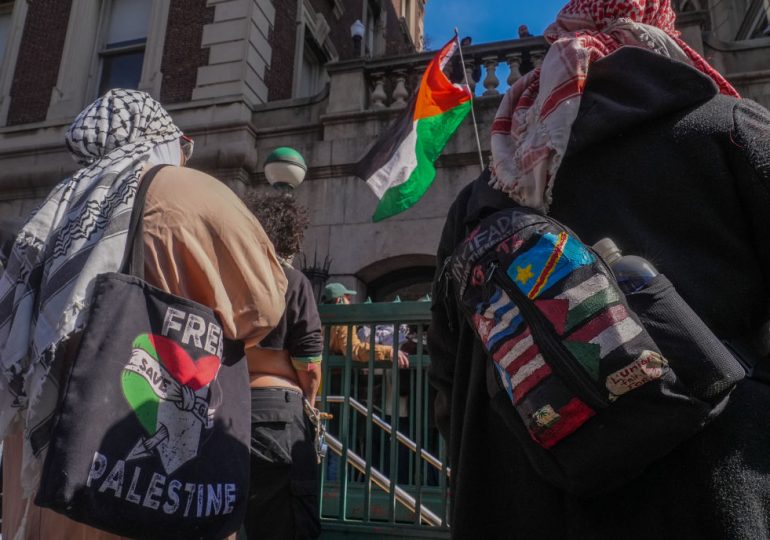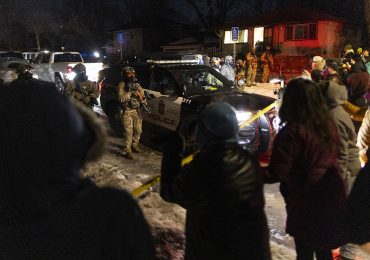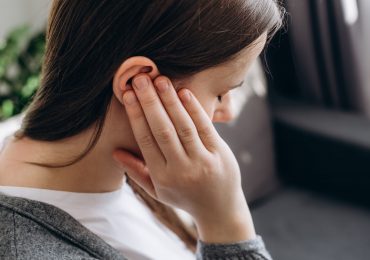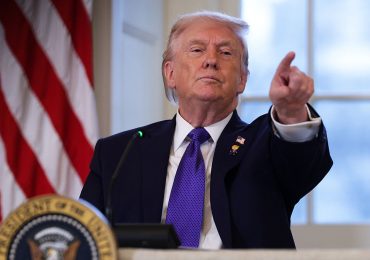Columbia has drawn ire from all sides of the political spectrum since it was roiled by campus protests last year and deals with the fallout from the Trump Administration this year. Now, its controversy could be impacting the makeup of its future student body.
[time-brightcove not-tgx=”true”]
Columbia College and the School of Engineering and Applied Science announced Thursday that it received 59,616 applications for the class of 2029, marking the smallest pool of applicants in years. It’s the first application cycle since the “Gaza Solidarity Encampment” and pro-Palestinian student protests broke out last spring, which resulted in New York police storming the campus at the behest of university leaders and arresting dozens of students.
Several other elite colleges, including Yale, Brown, and Dartmouth, all of which saw similar demonstrations by students, also saw decreases in application numbers this year. Others, like Harvard and Cornell, did not share or limited their public admissions data at this time, in the second cycle after the Supreme Court’s ruling ending the practice of affirmative action.
But even among those who applied, recent administrative actions at Columbia have some admits weighing whether or not to accept their offers. Earlier this month, the Trump Administration cancelled $400 million in federal grants and contracts to Columbia, amid an ongoing Department of Education investigation into reports of antisemitism at Columbia and four other institutions. In a letter addressed to Columbia on March 13, the Trump Administration issued a list of demands to the university, including expelling or issuing multi-year suspensions on students who participated in the encampments, abolishing the school’s judicial board and centralizing disciplinary action through the university president’s office, banning masks and requiring any masked individuals to visibly wear their Columbia ID, and empowering the university’s security force with the authority to arrest “agitators.” The letter also requested that Columbia place the Middle East, South Asian, and African Studies department under “academic receivership”—in which an external administrator would directly oversee the department—for at least five years.
On the same day, Columbia announced that it expelled or suspended some of the students who participated in the occupation of Hamilton Hall, a campus building, and temporarily revoked the degrees of others who have graduated. And on March 21, the university agreed to several other of the demands. In a 4,000-word letter from its interim president, the university said that it would, among other measures, reform its disciplinary process and empower 36 campus officers with the authority to make arrests.
A recent series of high-profile immigration actions against Columbia students who participated in pro-Palestinian campus activism have also shaken the confidence of some admits. Mahmoud Khalil, a Palestinian graduate student who led negotiations between student protesters and university officials last spring, was arrested by U.S. Immigration and Customs Enforcement agents on March 8 and had his green card revoked. Following his arrest, ICE also attempted to arrest and deport Yunseo Chung, a third-year undergraduate student, and Ranjani Srinivasan, a 5th year PhD student.
More than 1,400 faculty and students at Columbia and Barnard College signed onto an academic boycott of Columbia University “in response to the university betraying its fundamental responsibility to protect students, defend academic freedom, and promote a climate of open discussion and dissent.” The pledge includes boycotting collaborations with faculty holding administrative positions and academic or cultural events held by Columbia or Barnard.
In the past few weeks, a number of social media users have made posts or comments about declining or rescinding their acceptance offers, or withdrawing their applications. One such admit shared a letter they sent to Columbia explaining why they are rejecting their offer of admission in a post on X that has since been made private. “While I am honoured and grateful to have been admitted, it is with great disappointment and frustration that I must decline this offer to attend the program,” the letter read. “I would be remiss to not admit that my decision is informed largely by Columbia University’s decision to capitulate to the far-reaching demands of the Trump administration.”
Another person shared a letter to Columbia explaining why they withdrew their application: “As someone who is pursuing a legal education for the protection of my community against violations of our civil rights and/or liberties, I do not wish to attend a school that does not protect their own.”
In a Reddit post two weeks ago, titled “Situation just went from worse to worser,” a user shared their decision to withdraw their application to Columbia’s law school. “It was my top choice, my dream school,” the user wrote. “Yet, in the case where they would accept me I could not conscionably allow my above median/75th stats to contribute to that institution’s standing.”
“I used to think that I shouldn’t have to sacrifice a degree of that caliber in the city that I love due to the actions of university administration, but their most recent actions (including but not limited to degree revocation and expelling their union president a day before negotiations) show me they are irredeemable,” the user added. “They’ve proven they are willing to sacrifice me and [any] other potential student for pennies on their endowment and frankly I do not want to be associated with an institution that will only be remembered for their cowardice during this time.”
At least seven others shared across various posts and comments on Reddit that they withdrew their applications, while several said they decided not to apply at all for similar reasons.
In several threads posted to Reddit, admits asked for advice on whether or not they should attend given their political views. “I’m a Jewish student, and my research focuses on Jewish students in higher education. At the same time, I’m pro-Palestinian and anti-Zionist, which makes my position somewhat complicated,” one user wrote. “Columbia’s recent actions,” the user continued “make me question the university’s commitment to protecting its students. It feels like an environment that may not align with my values, even though I’ve always dreamed of going to Columbia and living in NYC.” Three others commented that they’ve declined their acceptance offers for similar reasons.
Others shared concerns that the cut in federal funding might impact their programs, while others still raised concerns about whether the school would do enough to protect international students from possible immigration action. The university’s journalism school released a statement on March 14 affirming its support for students’ right to free speech after Khalil’s arrest and “in defense of First Amendment principles of free speech and free press across the political spectrum.”
“Here at Columbia University Graduate School of Journalism we are witnessing and experiencing an alarming chill,” the statement reads. “Some of our faculty members and students who have covered the protests over the Gaza war have been the object of smear campaigns and targeted on the same sites that were used to bring Khalil to the attention of Homeland Security. President Trump has warned that the effort to deport Khalil is just the first of many.”
Several comments across posts raised their own concerns about antisemitism on campus. Last year, the university’s student-run newspaper, the Columbia Spectator, found that some Jewish students declined their offers from Columbia due to concerns about antisemitism on campus. Several of the university’s top donors pulled funding last year in response to the pro-Palestinian protests, and a coalition of U.S. and Israeli citizens filed a lawsuit on March 24 against organizers and supporters of pro-Palestinian actions at Columbia, alleging that they served as Hamas’ “propaganda arm.”
It’s unclear how much concerns over Columbia’s response to student activism contributed to the dip in its admissions rate this year. Whether there is a significant change in enrollment numbers won’t be revealed until later this year.
TIME has reached out to Columbia University for comment.
Leave a comment








